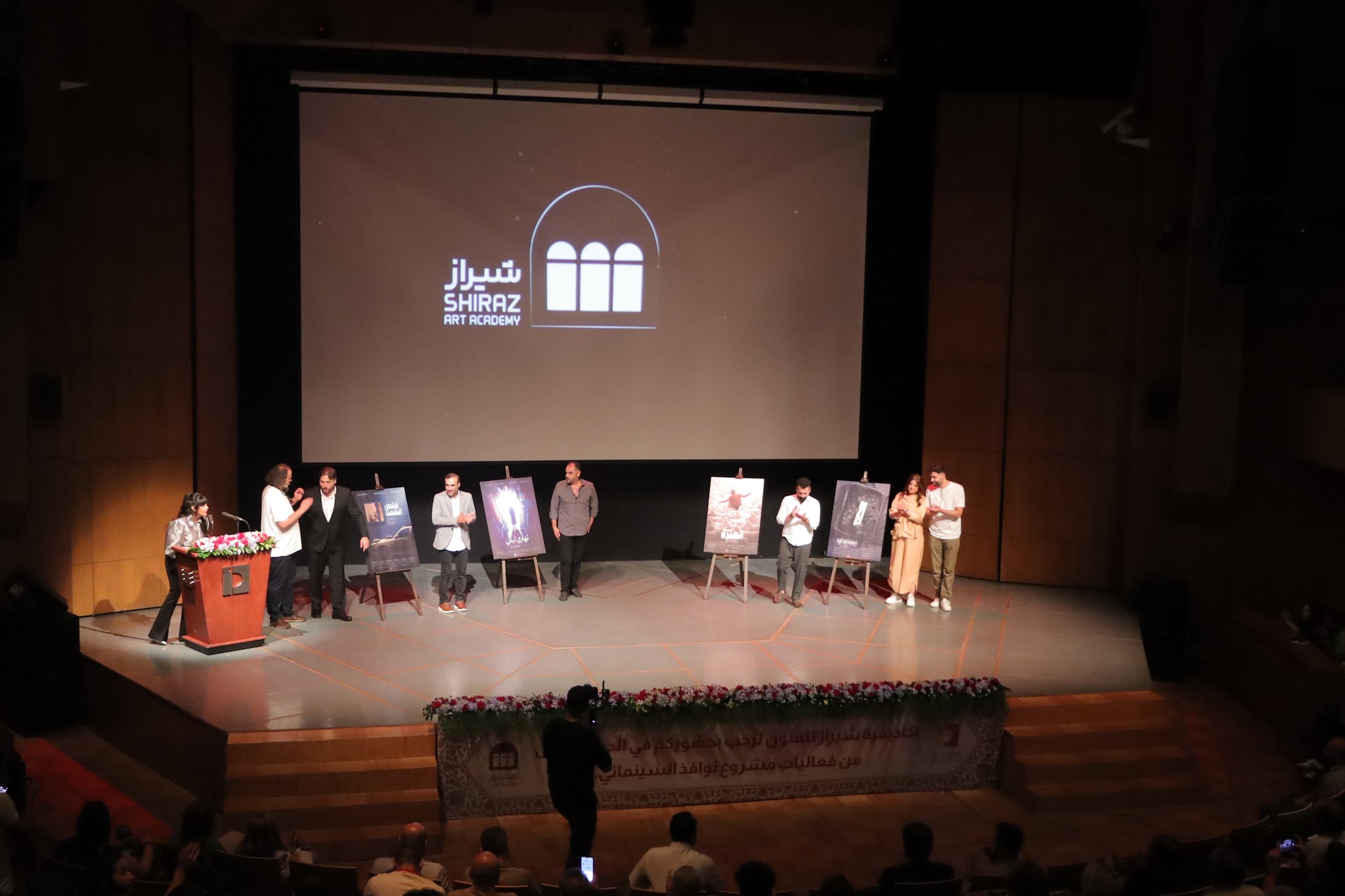The Opera House—an elegant venue that promises enchantment, culture, and escape. On this particular evening, I found myself there, not as a seasoned opera-goer, but as a parent trying to introduce my ten-year-old daughter and her friend to the magic of cinema. Little did I know that our adventure would unfold in unexpected ways.
As we settled into our seats, the anticipation hung thick in the air. The auditorium buzzed with excitement, a sea of faces—strangers bound by the shared promise of art. But as the minutes stretched into an hour, the novelty wore thin. The room, devoid of air conditioning or ventilation, became a stifling cocoon. The audience shifted restlessly, fanning themselves with programs, their patience waning.
My daughter, usually more patient, squirmed in her seat. Her friend, equally restless, whispered, “Why did you bring us here, Mom? It’s hot, and the show hasn’t even started!” I glanced around, sharing their frustration. We were trapped—no way to retreat home, our car’s gas tank running on fumes after their acting course at the nearby theater.
Just when impatience threatened to consume us, the lights dimmed, and the screen flickered to life. The first film, “Kheles Al-Shahn” (Out of Power), began—a stark contrast to our stifling reality. The opening scene featured a taxi driver, desperate to fill his tank with a single gallon of fuel. The radio blared, “We are with you on air from the oldest inhabited capital in the world—Damascus.” And then, as if orchestrated by fate, Fairouz’s angelic voice soared, singing an ode to the city.
The irony hit me like a punchline: a taxi driver’s struggle juxtaposed with Fairouz’s timeless melody. Damascus—the ancient, war-torn city—held us captive in its paradox. We laughed, not at the film’s humor, but at life’s absurdity. How could we, in our discomfort, find solace in this poignant scene?
Recently, the Shiraz Academy for Arts hosted the Nawafeth (Windows) project, a cinematic celebration that brought together four talented directors and a dedicated professional team. The project resulted in the creation of four captivating short Syrian narrative films. Working as a cohesive family, they poured their passion and dedication into this endeavor. During this event, the Shiraz Academy also unveiled its new visual identity. Inspired by ancient and historical architectural art from the city of Shiraz, the capital of Iranian art, the identity reflects the academy’s commitment to professionalism and creativity. These films, each unique in their storytelling, offer a profound glimpse into the lives and struggles of the Syrian people.
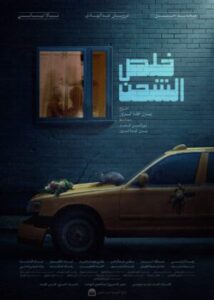 “Kheles Al-Shahn” (Out of Power), directed by Yazan Najdat Anzour, is a poignant and insightful short film that delves into the paradoxical life of Syrians, capturing both the humor and the harsh realities they face. The film follows the story of Kifah, a young Syrian man preparing to marry his beloved Amal. Through their journey, the film portrays the myriad challenges that ordinary citizens encounter, particularly young couples on the brink of marriage. Anzour skillfully uses a blend of comedy and drama to highlight the couple’s struggles, from navigating bureaucratic hurdles in government offices to dealing with the chaos of crowded streets and the high costs of wedding preparations. The film’s narrative takes us through various settings, including money transfer offices, beauty salons, wedding halls, and hotels, each scene meticulously depicting the obstacles faced by Kifah and Amal.
“Kheles Al-Shahn” (Out of Power), directed by Yazan Najdat Anzour, is a poignant and insightful short film that delves into the paradoxical life of Syrians, capturing both the humor and the harsh realities they face. The film follows the story of Kifah, a young Syrian man preparing to marry his beloved Amal. Through their journey, the film portrays the myriad challenges that ordinary citizens encounter, particularly young couples on the brink of marriage. Anzour skillfully uses a blend of comedy and drama to highlight the couple’s struggles, from navigating bureaucratic hurdles in government offices to dealing with the chaos of crowded streets and the high costs of wedding preparations. The film’s narrative takes us through various settings, including money transfer offices, beauty salons, wedding halls, and hotels, each scene meticulously depicting the obstacles faced by Kifah and Amal.
The title, “Out of Power”, is deeply rooted in the current Syrian context, where frequent and prolonged power outages leave people without electricity for hours on end. This reality is reflected in the film, symbolizing the broader struggles of life in Syria. In a particularly symbolic scene, Kifah’s phone battery dies just as they are about to dance at their wedding, but they continue to dance to the music from Amal’s phone which is shortly left without power…Yet they continue dancing. This moment encapsulates the film’s central message: despite the numerous challenges and setbacks, hope and perseverance remain.
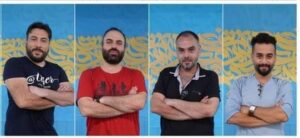 Anzour’s direction is both sensitive and incisive, capturing the essence of Syrian life with authenticity and depth. The film’s cinematography enhances this realism, using natural lighting and on-location shooting to immerse the audience in the characters’ world. The performances by the cast are heartfelt and genuine, adding layers of emotional resonance to the story.
Anzour’s direction is both sensitive and incisive, capturing the essence of Syrian life with authenticity and depth. The film’s cinematography enhances this realism, using natural lighting and on-location shooting to immerse the audience in the characters’ world. The performances by the cast are heartfelt and genuine, adding layers of emotional resonance to the story.
“Kheles Al-Shahn” is not just a film about a wedding; it is a broader commentary on the socio-economic conditions in Syria. The film’s ability to juxtapose moments of levity with profound social commentary makes it a powerful and thought-provoking piece of cinema.
In conclusion, “Kheles Al-Shahn” is a testament to the resilience and spirit of the Syrian people. It highlights the paradoxes of their daily lives, where moments of joy and hope are interwoven with struggles and hardships. Anzour’s film is a compelling narrative that resonates deeply, offering both a mirror to the present and a bridge to a more empathetic understanding of Syrian life.
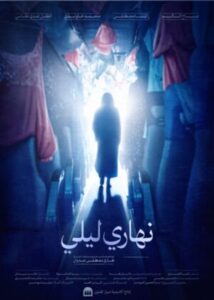 The second film, “Nahari Layli” (Daytime Night), directed by Tarek Adwan and written by Rama Al-Abdi, tells the story of Karim, a young boy who has lost his mother and is trying to navigate the harsh realities of life in Syria. By day, Karim helps his grandmother sell goods at a bus station, and by night, he works as an assistant to a bus driver. The narrative takes a dramatic turn when Karim encounters a woman who bears a striking resemblance to his deceased mother. The bus driver attempts to steal the woman’s jewelry, prompting Karim to intervene and help her escape. This act of bravery highlights the boy’s resilience and sense of justice, despite his tender age and the difficult circumstances he faces.
The second film, “Nahari Layli” (Daytime Night), directed by Tarek Adwan and written by Rama Al-Abdi, tells the story of Karim, a young boy who has lost his mother and is trying to navigate the harsh realities of life in Syria. By day, Karim helps his grandmother sell goods at a bus station, and by night, he works as an assistant to a bus driver. The narrative takes a dramatic turn when Karim encounters a woman who bears a striking resemblance to his deceased mother. The bus driver attempts to steal the woman’s jewelry, prompting Karim to intervene and help her escape. This act of bravery highlights the boy’s resilience and sense of justice, despite his tender age and the difficult circumstances he faces.
Director Tarek Adwan masterfully captures the essence of Syrian life through authentic locations such as bus stations and street markets. The choice to film in real environments with non-professional actors adds a layer of realism that deeply resonates with the audience. The film’s cinematography, combined with the ambient sounds of the streets and markets, immerses viewers in the daily life of its characters. The use of natural sounds, such as street noise and market chatter, further enhances the film’s authenticity. This choice to prioritize the sounds of everyday life over a traditional musical score underscores the film’s commitment to realism.
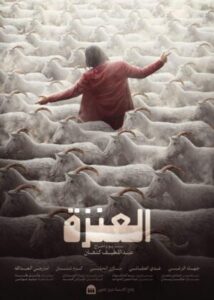 The third film, “Al-Anzah” (The Goat), directed by Abdul Latif Kanaan, masterfully explores themes of exploitation and resilience within a patriarchal society. The narrative centers on a mother and her son, who are subjected to the manipulative tactics of their landlord. The landlord’s coercive attempts to force the mother into a relationship under the threat of eviction highlight the power dynamics at play. The family’s only possession, a goat, becomes a crucial element in their struggle for survival. The son’s efforts to sell the goat to pay the rent are thwarted when it is stolen by local thugs, plunging him into a deeper cycle of exploitation. Kanaan’s direction effectively captures the stark realities faced by the impoverished, using authentic locations and a raw, unfiltered lens to bring the story to life. The performances of the cast add depth to the characters’ struggles, making their plight both heart-wrenching and thought-provoking.
The third film, “Al-Anzah” (The Goat), directed by Abdul Latif Kanaan, masterfully explores themes of exploitation and resilience within a patriarchal society. The narrative centers on a mother and her son, who are subjected to the manipulative tactics of their landlord. The landlord’s coercive attempts to force the mother into a relationship under the threat of eviction highlight the power dynamics at play. The family’s only possession, a goat, becomes a crucial element in their struggle for survival. The son’s efforts to sell the goat to pay the rent are thwarted when it is stolen by local thugs, plunging him into a deeper cycle of exploitation. Kanaan’s direction effectively captures the stark realities faced by the impoverished, using authentic locations and a raw, unfiltered lens to bring the story to life. The performances of the cast add depth to the characters’ struggles, making their plight both heart-wrenching and thought-provoking.
 The fourth film, “Ijabi” (Positive), directed by Rami Nedal, presents a stark contrast between its title and the unfolding narrative. The film begins with a young woman discovering her pregnancy test is positive, the only seemingly positive event in the story. From this point, a series of negative events ensue, including the husband’s car breaking down and the eventual miscarriage due to the family’s dire circumstances. The film poignantly illustrates how positive moments can be overshadowed by harsh realities and poor decisions, as the wife later realizes that keeping the baby might have facilitated their emigration and improved their lives. This contradiction between the film’s title and its content underscores the complexity of life, where hope and despair often coexist.
The fourth film, “Ijabi” (Positive), directed by Rami Nedal, presents a stark contrast between its title and the unfolding narrative. The film begins with a young woman discovering her pregnancy test is positive, the only seemingly positive event in the story. From this point, a series of negative events ensue, including the husband’s car breaking down and the eventual miscarriage due to the family’s dire circumstances. The film poignantly illustrates how positive moments can be overshadowed by harsh realities and poor decisions, as the wife later realizes that keeping the baby might have facilitated their emigration and improved their lives. This contradiction between the film’s title and its content underscores the complexity of life, where hope and despair often coexist.
As the credits rolled and the lights came back on, I glanced at my daughter and her friend. Their eyes sparkled with a mix of emotions—confusion, empathy, and a newfound understanding of the world around them. This evening at the Opera House had turned into an unexpected journey through the heart of Syrian life, leaving us all with much to ponder.
Perhaps, in that stifling auditorium, we’d discovered something profound—the resilience of the human spirit, the ability to find joy even in the darkest moments.
And so, we left the opera house, our laughter trailing behind us, a testament to our paradoxical existence. For Syrians, life is a tragicomedy—a blend of frustration and resilience, absurdity and hope. We may lack AC and ventilation, but we’ve mastered the art of making fun of ourselves. After all, in the oldest inhabited capital in the world, laughter should remain our lifeline to keep the record.
Lama Alhassanieh

